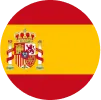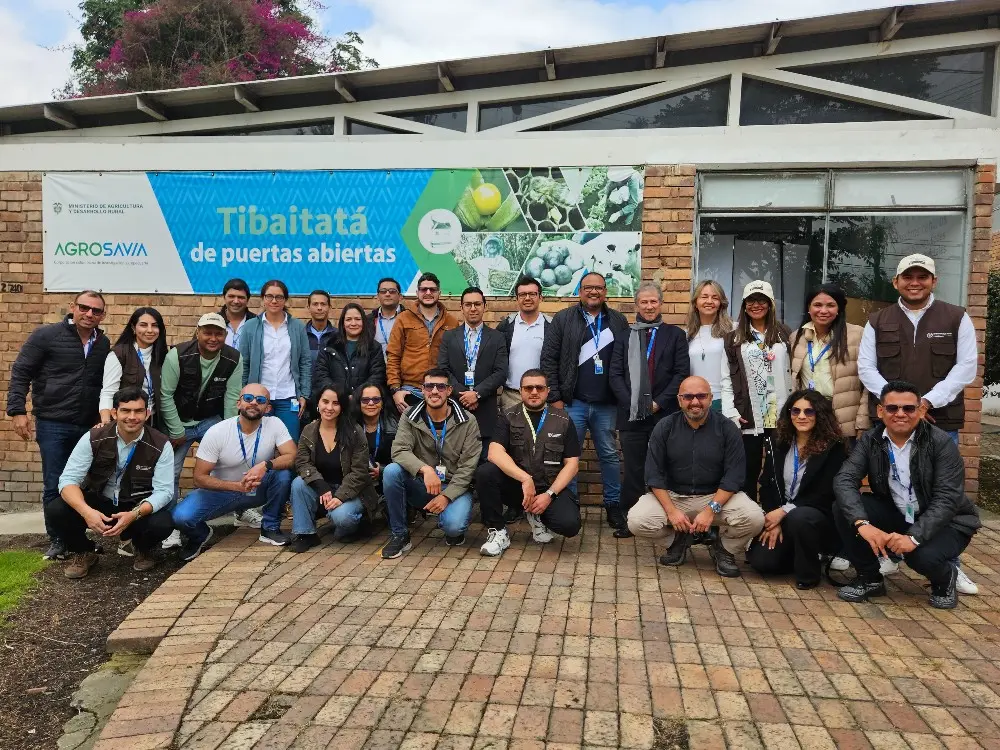- During the closing event of the PlaN A project, AGROSAVIA, with the support of the Ministry of Agriculture and Rural Development, highlighted the achievements reached in 14 departments, where rural families and communities are advancing towards sustainable agrifood systems through agroecological practices and participatory knowledge.
Mosquera, Cundinamarca. October 22, 2025. On October 20 and 21, 2025, the closing event of Phase I of the National Agroecology Plan project: PlaN A was held, aimed at developing sustainable agrifood systems in prioritized peasant territories. This initiative is part of the 14 projects that integrate Goal 25 "Agroecological models in agrifood systems for current and potential peasant reserve areas," defined together with the Ministry of Agriculture and Rural Development (MADR).
PlaN A is a Research, Development, and Innovation (R&D&I) initiative that seeks to implement agroecological technologies and generate participatory knowledge in prioritized peasant territories, promoting sustainability and social inclusion in technological development.
The project, directed by the Department of Sustainable Intensive Production, coordinates, implements, and systematizes the field experiences developed in 14 departments and 23 municipalities across the country, through 13 projects led by researchers from the Tibaitatá Research Centers (Fabián Martínez and Diana Serralde), Motilonia (Adriana Tofiño), Caribia (Marlon Yacomelo), El Nus (Wilson Barragán), La Selva (Fabrice Vaillant), Turipaná (Lilibet Tordecilla), La Libertad (Olga Castro, José Rojas, and Otoniel Perez), Nataima (Johanna Garnica), Obonuco (David Álvarez), and the Carmen de Bolívar headquarters (Manuel Ramón Espinoza), most of whom participated in the event.
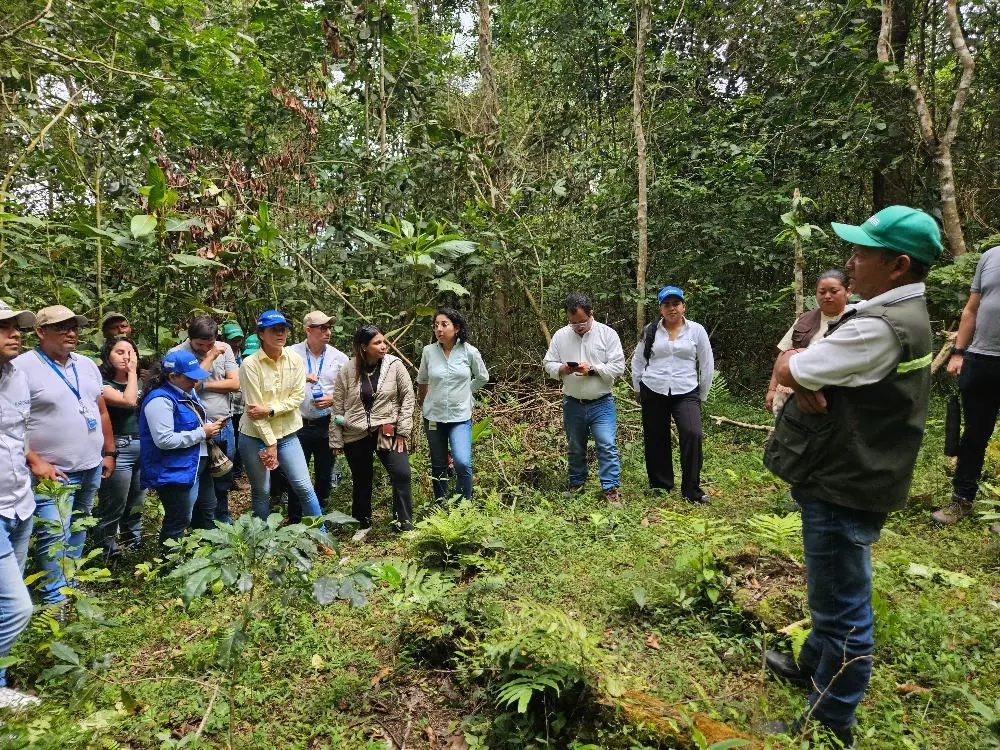
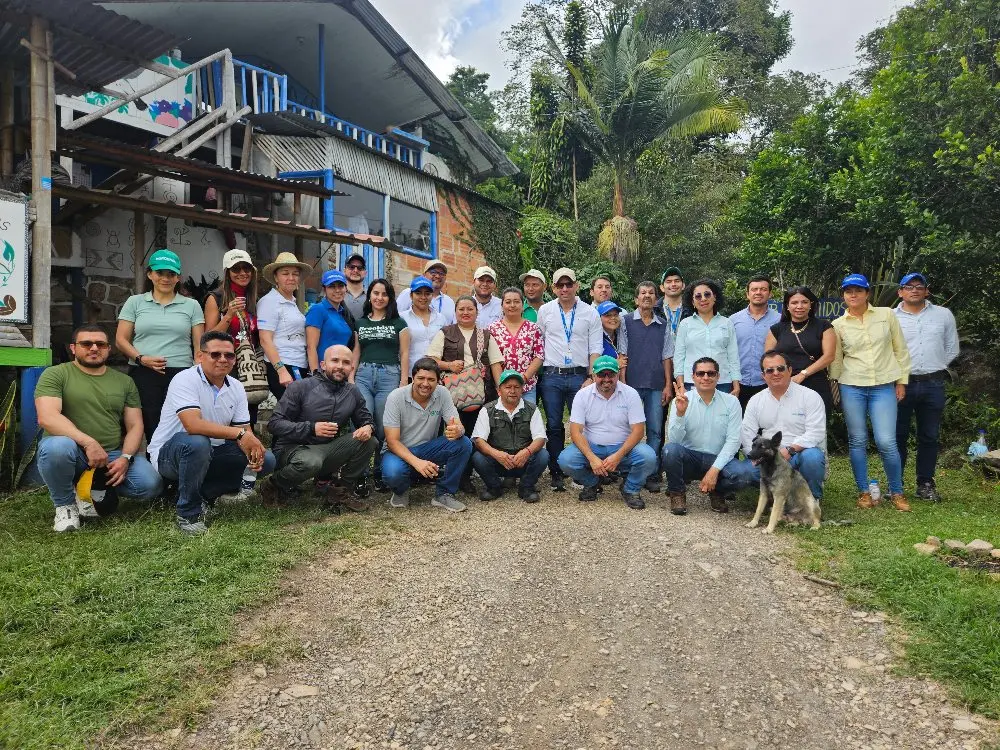
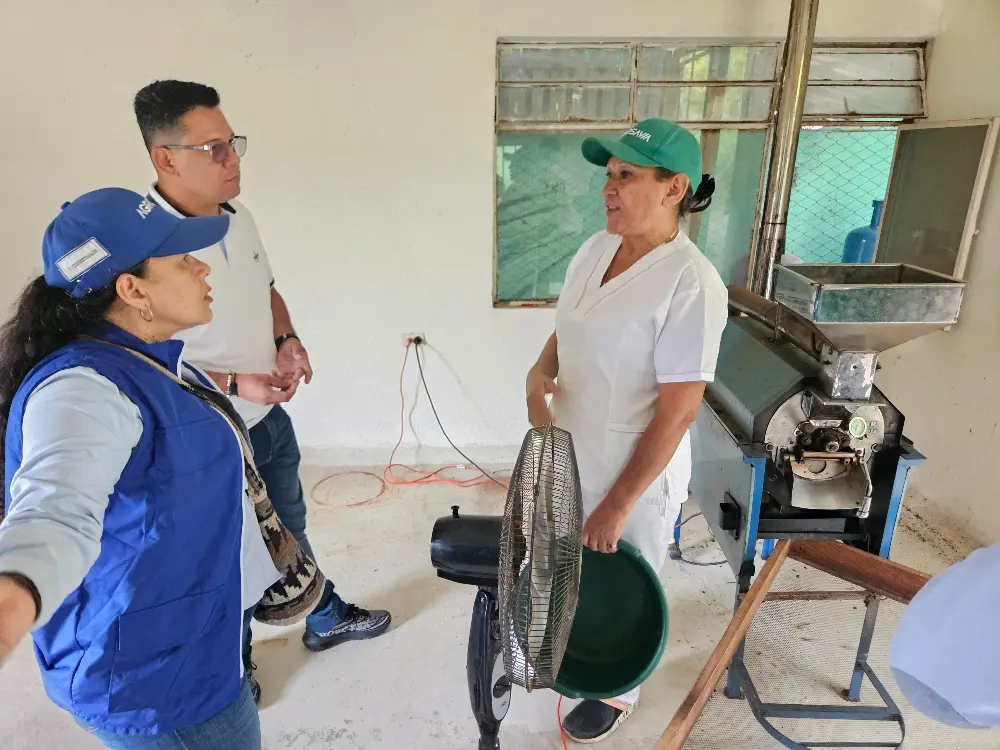
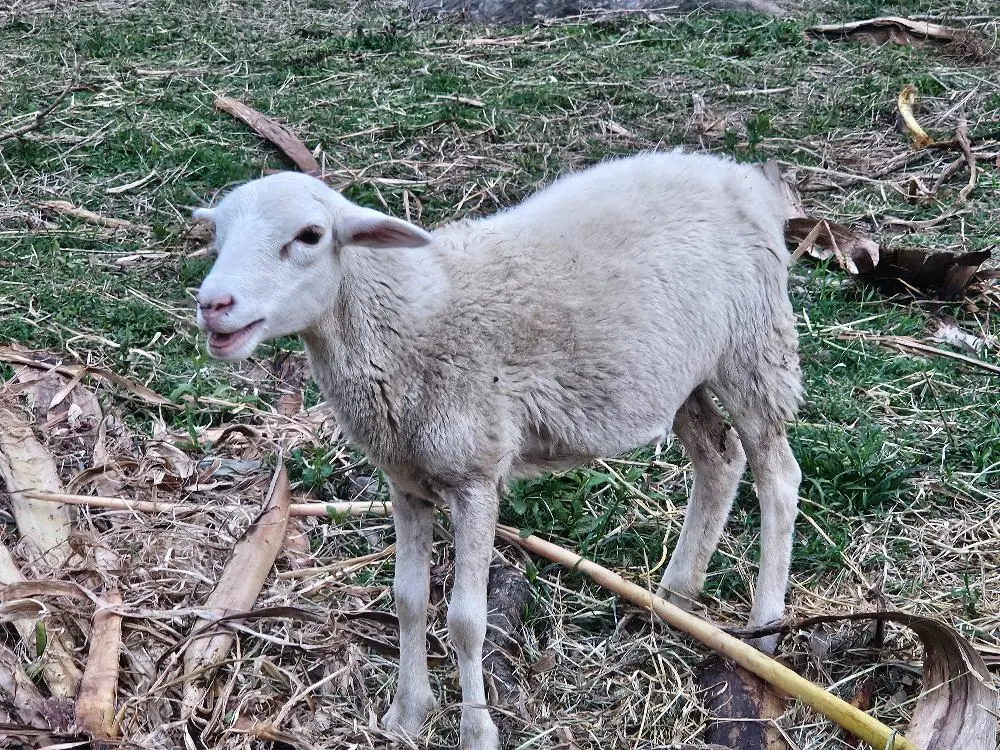
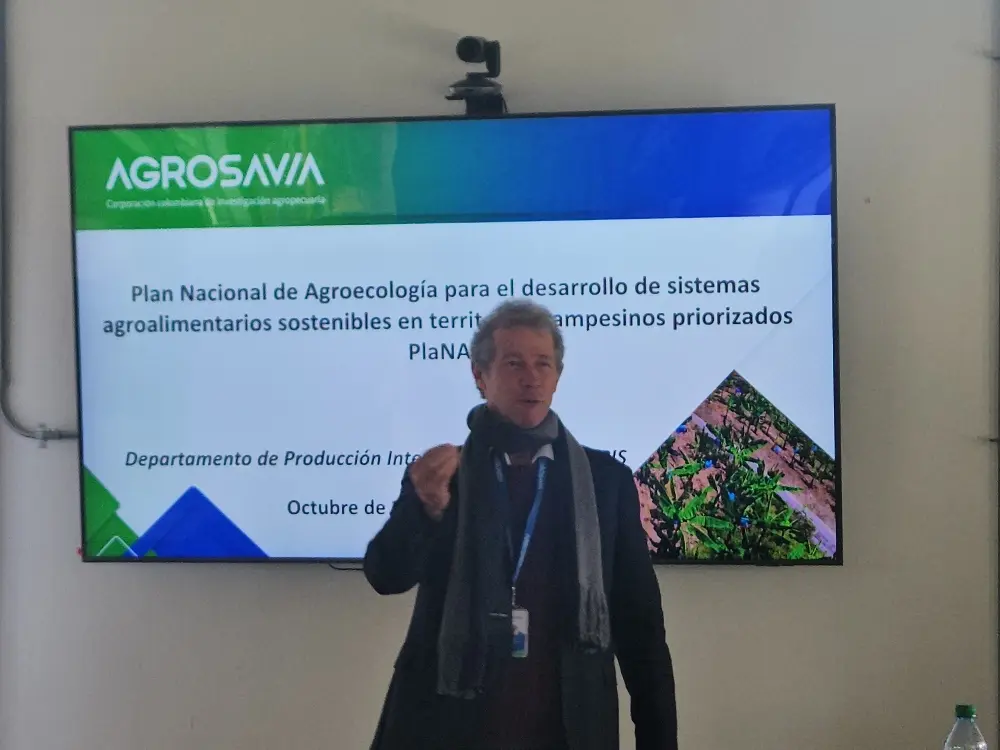
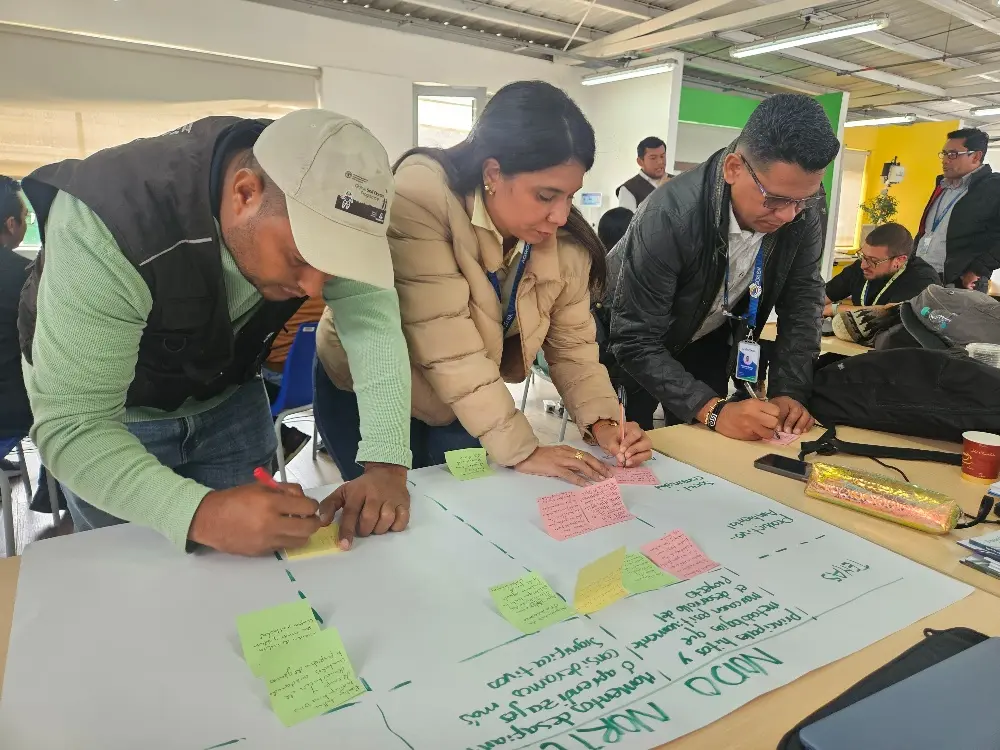
On October 20, the session took place in the municipality of Tibacuy (Cundinamarca), in the Forest Protection Reserve Zone of Cerro del Quininí, where attendees toured the project's demonstrative experiences, such as the Co-Implementation of Agroecological Agroecosystems in Tibacuy Municipality, Cundinamarca, led by researcher Fabián Enrique Martínez Camelo. During the day, producer families shared the results obtained in nearly a year of working with agroecological practices, such as the implementation of biofactories to produce biopreparations, composting and vermicomposting, beekeeping, nature tourism, soil fertility management, coffee processing, productive diversification, and the integration of small livestock (poultry, pigs, and goats). These experiences highlighted the community's commitment and the positive impact of the agroecological transition and the appropriation of knowledge in their productive systems.
On October 21, the event continued at the Tibaitatá Research Center, where Martha M. Bolaños B., the Lead Researcher of the PlaN A project, presented the key progress and achievements of the initiative. During the session, the Executive Director of AGROSAVIA, Miguel Serrano López, emphasized the relevance of these coordinated efforts to strengthen agroecology, sustainability, and productive diversity in rural Colombia. He also highlighted the importance of environmental responsibility, community integration, and the interaction between the state, institutions, academia, and communities, the so-called "quadruple helix," as fundamental pillars for consolidating agroecological-focused agrifood systems in Colombia.
The day concluded with the participatory workshop "The Legacy of the Project," in which researchers collectively reflected on the main milestones, lessons learned, and challenges faced during Phase I of PlaN A. In this way, the need to strengthen the results obtained and leverage the territorial impact achieved by AGROSAVIA's Research Centers, in coordination with rural communities and local actors, was reaffirmed as a way to advance towards a solid agroecological transition, contributing to the well-being of peasant families and the sustainability of territories.
- More information here:
- María Elena Londoño Rubio
- Communications, Identity and Corporate Relations Professional
- Research Center Tibaitatá
- Communications, Identity and Corporate Relations Advisory Office
- melondono@agrosavia.co
- AGROSAVIA

